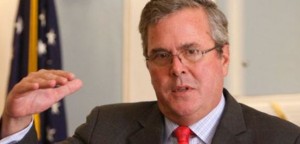 Twenty years ago, terrorists chose a random group of Americans, on a routine flight, to be collateral damage in a spectacular act of terror. The 33 passengers and seven crew members of Flight 93 could have been any group of citizens selected by fate.
Twenty years ago, terrorists chose a random group of Americans, on a routine flight, to be collateral damage in a spectacular act of terror. The 33 passengers and seven crew members of Flight 93 could have been any group of citizens selected by fate.
In that sense, they stood in for us all.
The terrorists soon discovered that a random group of Americans is an exceptional group of people. Facing an impossible circumstance, these Americans comforted their loved ones by phone, braced each other for action, and defeated the designs of evil.
These Americans were brave, strong, and united in ways that shocked the terrorists – but should not surprise any of us. This is the nation we know. And whenever we need hope and inspiration, we can look to the skies and remember.
-- George W Bush, Sept. 11, 2021
On Sept. 11, 2001, seven passengers and seven crew members boarded United Flight 93, heading from Newark to San Francisco.
Four of the passengers were Al Qaeda terrorists who overpowered the flight crew with knives and announced that they had a bomb. The passengers used cell phones to learn three other flights had been commandeered as weapons of terror against the World Trade Center and the Pentagon.
The passengers aboard Flight 93 spontaneously organized themselves to retake the cockpit from the terrorists. During the struggle, the plane crashed into a field in Pennsylvania rather than into the intended target, which the subsequent 9/11 Commission determined to have been either the White House or the United States Capitol.

A memorial plaque in memory of those who lost their lives in the crash of Flight 93 reads: In memory of the passengers and crew of United Airlines Flight 93, whose brave sacrifice on September 11, 2001, not only saved countless lives, but may have saved the U.S. Capitol from destruction.
Military officials claimed that Air Force jets would have downed the plane before it reached the intended target. The 9/11 Commission, however, concluded otherwise, noting that said officials were unaware of the hijacking until after the crash.
As reported by CNN in 2006:
Authorities suggested that U.S. air defenses had reacted quickly, that jets had been scrambled in response to the last two hijackings, and that fighters were prepared to shoot down United Airlines Flight 93 if it threatened Washington. In fact, the commission reported a year later, audiotapes from NORAD's Northeast headquarters and other evidence showed clearly that the military never had any of the hijacked airliners in its sights, and at one point chased a phantom aircraft – American Airlines Flight 11 – long after it had crashed into the World Trade Center, according to the Washington Post.
The U.S. Air Force has enough fire power to destroy the planet, but on that dark day, it managed to scramble two F-16 fighters without any ammunition and devised a plan to find and ram United Flight 93 to the ground. Fortunately, passenger Todd Beamer, a former college athlete, Sunday school teacher and account manager, had taken matters into his own hands along with his fellow passengers.
There are multiple lessons to draw from Flight 93 about the importance of self-reliance and the grave danger of over-reaction. If the September 11 attacks did not reveal to you the dangers of the phrase, “We have to do something!!!!,” perhaps our all-too-often shambolic response to the COVID-19 pandemic made it plain.
Mark Woods, in writing for the Florida Times Union about Lori Guadagno, whose brother Richard was on board Flight 93, brought to light perhaps the most important point of all: Some of those who assaulted the Capitol on Jan. 6, 2021, ran right past the memorial to the crew and passengers of United Flight 93. As President Bush noted in his speech this past weekend:
And we have seen growing evidence that the dangers to our country can come not only across borders, but from violence that gathers within. There is little cultural overlap between violent extremists abroad and violent extremists at home. But in their disdain for pluralism, in their disregard for human life, in their determination to defile national symbols, they are children of the same foul spirit. And it is our continuing duty to confront them.
Our crazed, polarized foreign enemies will have the last laugh if we allow our own absurd levels of polarization to finish the work they started. Avoiding needless conflict over K-12 education would be helpful in this regard.
The Florida Board of Education announced its finalists for education commissioner today, with a list of three candidates including Indiana's outgoing education chief Tony Bennett.
Bennett, who gained national acclaim and criticism for pushing Florida-style education reforms in his home state, lost his re-election bid last month. That immediately sparked rumors that the Chiefs of Change leader might come to the Sunshine State.
The other finalists culled from 53 applications are:
Charles Hokanson Jr. A consultant and former president of the Alliance for School Choice, he also served as a deputy assistant secretary at the U.S. Department of Education, appointed by former President George W. Bush. According to the Orlando Sentinel, Hokanson said he worked on state reform efforts at the alliance, including those pushed in Florida by former Gov. Jeb Bush.
Randy Dunn. Murray State University president and a former Illinois state superintendent of education.
The board will interview the finalists during its Dec. 11 meeting in Tampa.
The new education commissioner will replace Gerard Robinson, who left at the end of August. Robinson, who only took the job a year earlier, said at the time that being apart from his family in Virginia proved too challenging. He also received sharp criticism surrounding changes to the Florida Comprehensive Assessment Test that resulted in test scores dropping statewide.
Pam Stewart, the interim education commissioner, did not submit an application for the permanent post.
 Jeb Bush may or may not seek the presidency in 2016, but those who dismiss his education foundation as a political prop are simply out of touch. What the Foundation for Excellence in Education is showing once again, with its fifth annual national summit, is that it is creating a sense of urgency and national purpose around our most fundamental commitment to each new generation.
Jeb Bush may or may not seek the presidency in 2016, but those who dismiss his education foundation as a political prop are simply out of touch. What the Foundation for Excellence in Education is showing once again, with its fifth annual national summit, is that it is creating a sense of urgency and national purpose around our most fundamental commitment to each new generation.
by Joe Williams
I spend a lot of my time navigating the tumultuous internal conflicts and ideological inconsistencies within my party, the Democratic Party, when it comes to public education. In fact, that’s more or less my job description. So I have to admit that it is somewhat pleasurable to watch the emergence of similar tensions on the other side of the aisle amongst my Republican allies, especially when it comes to ed reform and school choice. Maybe pleasurable is not the right word. Perhaps it’s perplexing. Even a little depressing.
Nearly a year ago, we watched with great interest as a fascinating left-right alliance formed in Washington between the teachers unions (who didn’t like the concept of federal accountability in schools) and the Tea Party (which didn’t like the idea of any kind of federal involvement in schools.). Together, this alliance wound up shaping proposed changes to existing federal law that would let states and districts off the hook for improving the academic performance of millions of disadvantaged children. Historically reasonable folks like poor John Boehner started looking like the helpless, powerless substitute teachers we used to torment back in middle school.
I don’t intend this to kick a speaker while he is down, but to point out the obvious as Republicans consider their path on education issues: they have to figure out whether they are Boehner Republicans (willing to cut a deal involving a federal role in school choice and accountability issues) or Tea Party Republicans (who would seem happiest if there were no schools, let alone taxpayer-supported public schools). They need to figure out who among them is willing to let the federal government act as a catalyst for some key needed policy changes, and who among them oppose any federal education policy whatsoever just as a misguided point of principle.
I don’t mention this glibly. The tremendous pull that the Tea Party has had on domestic policy issues, including education, has folks on our side of the aisle looking back longingly at the groundbreaking work that President George W. Bush and Boehner were able to accomplish with liberal icons like Senator Teddy Kennedy and Rep. George Miller. You know, back in the good old days where at least both parties agreed that government could be an enabler of good, rather than just an overpriced agent of evil.
So, understanding that tips from a Democrat will be taken with a grain of salt at the RNC, I nonetheless offer these nuggets for consideration:
1. Throw the Tea-Baggers under the bus: If you don’t do it for issues of substance, do it for the politics alone. (more…)
Giving parents and families the opportunity to choose the very best education options available for their children is not only the right thing to do, but it leads to accountability for results.
School choice plus standards, assessments, transparency for results, and consequences for failure has been the recipe our nation’s public schools have been following for the past decade under No Child Left Behind.
This work has not been easy. I didn’t think it would be. In fact, it’s been hard. It’s why a lot of adults in the system have pushed back so hard. They don’t like change. They don’t want to be accountable for results. And some simply don’t want the “feds” telling them what to do, which is something they weren’t shy about telling me!
I know it won’t surprise you to hear I fielded the occasional question during my years in the White House as head of the Domestic Policy Council, and then as a Cabinet secretary, about the legitimacy of the U.S. Department of Education. The questioner would ask where in the Constitution it provided for the establishment of the agency, knowing such language did not exist. The message was simple: the federal government should simply stay out.
Sadly the “stay out” message has been exploited and leveraged by powerful teachers’ unions and other entrenched interests, who, with no principled opposition to a federal role in education, just want more taxpayer dollars with fewer strings attached. This “unholy alliance” between the unions and those who want no role for the federal government in education is propping up the status quo on the backs of our most vulnerable children. It’s shameful beyond words.
Here’s why there’s a legitimate role for the federal government in education.
When the Elementary and Secondary Education Act was signed into law in 1965, by any measure, poor and minority students were overwhelmingly denied meaningful educational opportunities because of the abysmal quality of the schools they attended. Then, and now, education remains a civil rights issue. While the federal role in education has been and remains limited, providing less than 10 percent of the total funding for the nation’s public schools, it is focused on our disadvantaged students, helping them to have a shot at the American Dream. (more…)